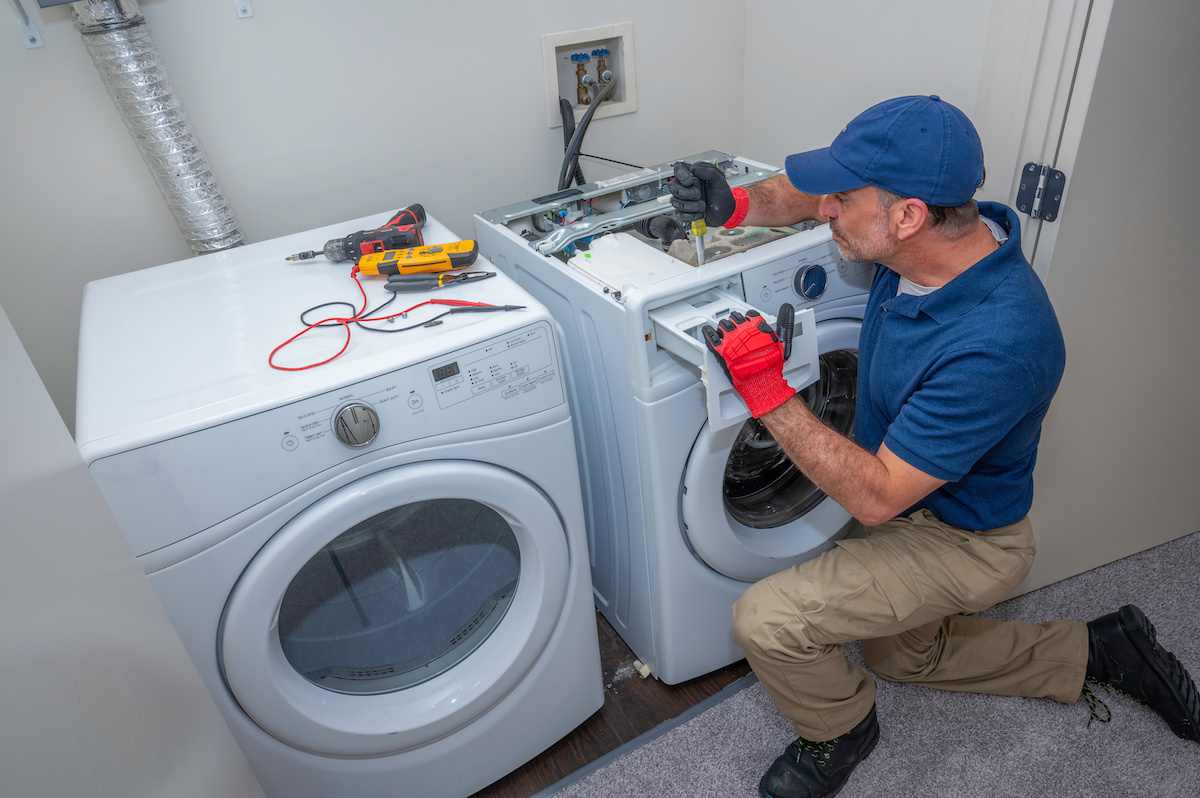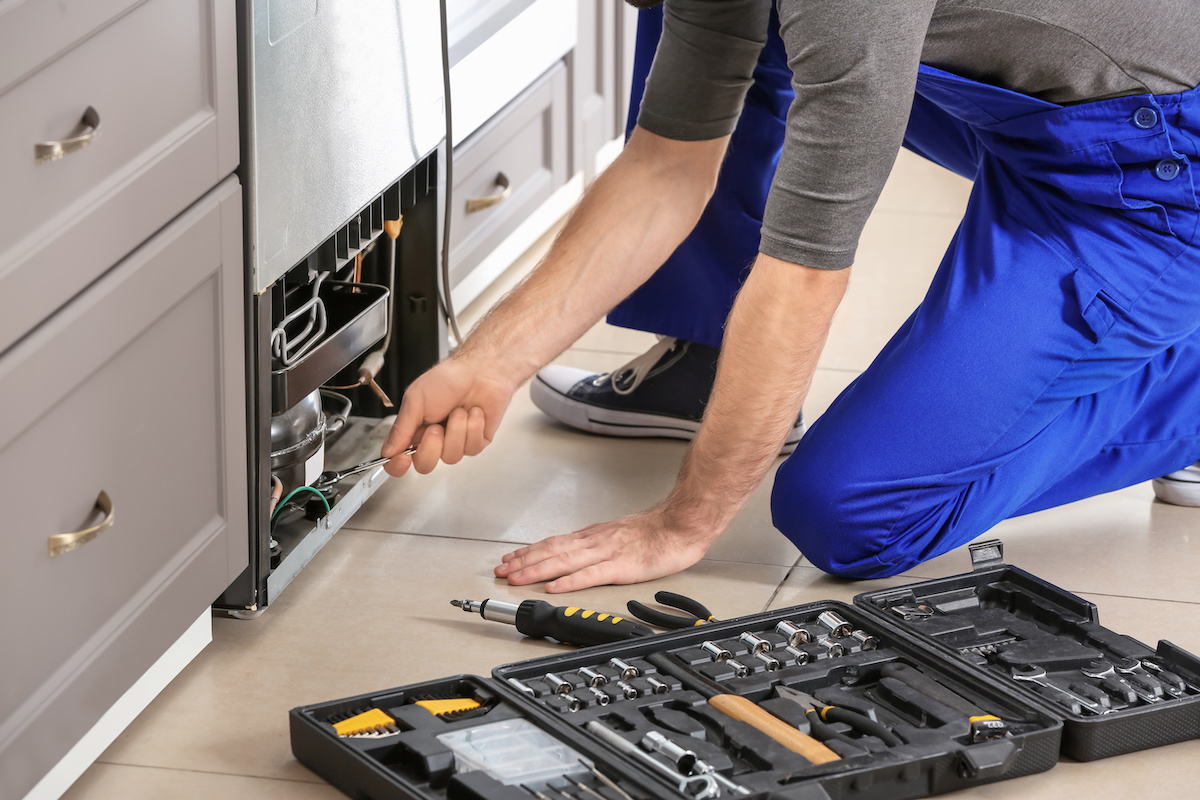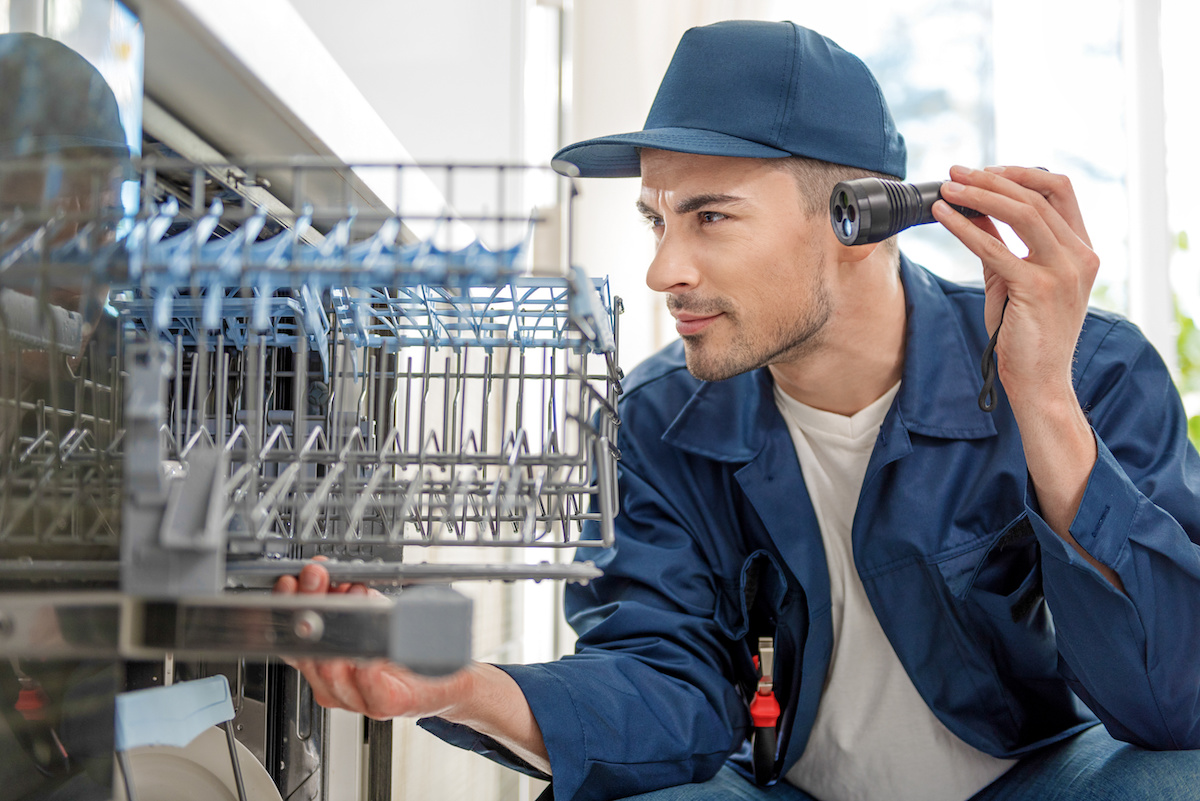Get it Fixed!
We offer same-day or next-day appliance repair of all major brands. For the fastest reply, call us at 727-510-3524.
Mon-Fri: 9 am – 5 pm
Saturday: Appointments Only
Sunday: Closed
Get it Fixed!
We offer same-day or next-day appliance repair of all major brands. For the fastest reply, call us at 727-510-3524.

Appliances are the workhorses of our homes, making our lives more convenient and comfortable. However, when they break down, the cost of professional repairs can quickly add up. This is where DIY appliance repair comes to the rescue. Not only does it save you money, but it also empowers homeowners to take control of their appliances’ maintenance.
In this article, we’ll explore essential DIY appliance repair tips that will help you troubleshoot common problems and get your appliances back in working order.
Before diving into any appliance repair project, it’s crucial to prioritize safety. Many appliances are powered by electricity and involve potentially hazardous components. To ensure your well-being:
Having the right tools is essential for successful appliance repair. Here’s a list of tools that should be in your DIY repair arsenal:

Let’s delve into some common appliance problems and how to address them:
Preventive maintenance for appliances is essential to extend their lifespan, improve efficiency, and avoid costly repairs. By following these tips, you can keep your appliances running smoothly and minimize the likelihood of breakdowns:
Familiarize yourself with the manufacturer’s user manual for each appliance. It often contains valuable information about maintenance schedules, recommended cleaning methods, and troubleshooting tips.
Inspect the seals and gaskets on appliances like refrigerators, freezers, and ovens. Damaged or worn seals can lead to energy wastage and compromised performance.
Conduct routine visual inspections of cords, plugs, and hoses for signs of wear or damage. Replace damaged parts promptly.
Inspect hoses and connections on appliances like washing machines and dishwashers for leaks or kinks. Replace damaged hoses to prevent water damage.
Arrange for professional inspections and maintenance by qualified technicians for appliances like HVAC systems, water heaters, and gas appliances.
Keep a maintenance log for each appliance, noting when you performed maintenance tasks, any issues you encountered, and any repairs made.
By incorporating these preventive maintenance tips into your routine, you can not only prolong the lifespan of your appliances but also ensure they operate efficiently, saving you money on energy bills and avoiding the inconvenience of unexpected breakdowns.

Knowing when to call a professional for appliance repair is essential to prevent further damage and ensure the safety and efficiency of your appliances.
Here are some situations when it’s advisable to seek the expertise of a trained appliance repair technician:
Appliance Doesn’t Work: If an appliance is completely non-functional and simple troubleshooting steps (like checking the power source or resetting circuit breakers) don’t resolve the issue, it’s time to call a professional.
Unusual Noises: Strange or loud noises coming from appliances, such as grinding, rattling, or screeching, can indicate internal issues that require professional attention.
Leaks or Water Damage: If an appliance is leaking water, gas, or other substances, it poses a safety hazard and requires immediate attention from a professional technician.
Electrical Issues: Appliances with electrical problems, such as flickering lights, tripped circuit breakers, or frequent power outages, should be examined by a professional to prevent electrical hazards.
Gas Appliance Problems: If you have a gas appliance (stove, oven, water heater) and you notice a gas odor, hissing sounds, or issues with ignition, turn off the appliance’s gas supply and call a technician immediately.
Burning Smells: If an appliance emits a burning or overheating smell, it could indicate electrical or mechanical problems that need to be addressed by a professional.
Inconsistent Performance: Appliances that no longer perform consistently or produce subpar results (e.g., uneven cooking, inefficient cooling) might require professional diagnosis and repair.
Repeated Breakdowns: If an appliance is experiencing frequent breakdowns even after being repaired, it’s a sign of underlying issues that should be thoroughly addressed by a professional technician.
Digital Display Errors: If an appliance has a digital display and shows error codes or malfunctions on the screen, a professional can interpret these codes and diagnose the problem accurately.
Safety Concerns: If you suspect an appliance poses a safety risk due to malfunctioning, overheating, or other issues, it’s crucial to have a professional inspect and repair it promptly.
Warranty Considerations: If your appliance is under warranty, attempting repairs yourself might void the warranty. In such cases, it’s best to contact the manufacturer or an authorized service provider.
Complex Repairs: For complex appliances with intricate components, specialized tools, and technical knowledge, it’s safer and more effective to rely on a professional technician.
Gas Line and Refrigerant Work: Repairs involving gas lines (for gas stoves, dryers, etc.) or refrigerants (for refrigerators and air conditioners) should be handled by professionals due to safety and environmental considerations.
Modern Features and Smart Appliances: Appliances with advanced features, digital controls, and smart technology require specialized expertise for repairs to avoid causing further damage.
Lack of Experience: If you lack experience with appliance repair or are unsure about the problem, it’s always a better choice to consult a professional to prevent accidental damage.
DIY appliance repair isn’t just about saving money; it’s about taking control of your home and maintaining your appliances for the long haul. By following these DIY appliance repair tips, you’ll not only troubleshoot common problems with confidence but also gain a sense of empowerment as a capable homeowner.
Remember to prioritize safety, acquire the right tools, and know when to call in the professionals. With a little knowledge and the willingness to learn, you can keep your appliances humming smoothly and your home running efficiently.However, if after trying these appliance repair tips, you are still running into issue, reach out to our team at Gulf Coast Appliances. We are experts in appliance repair and would love to help your appliance get back to working like new!